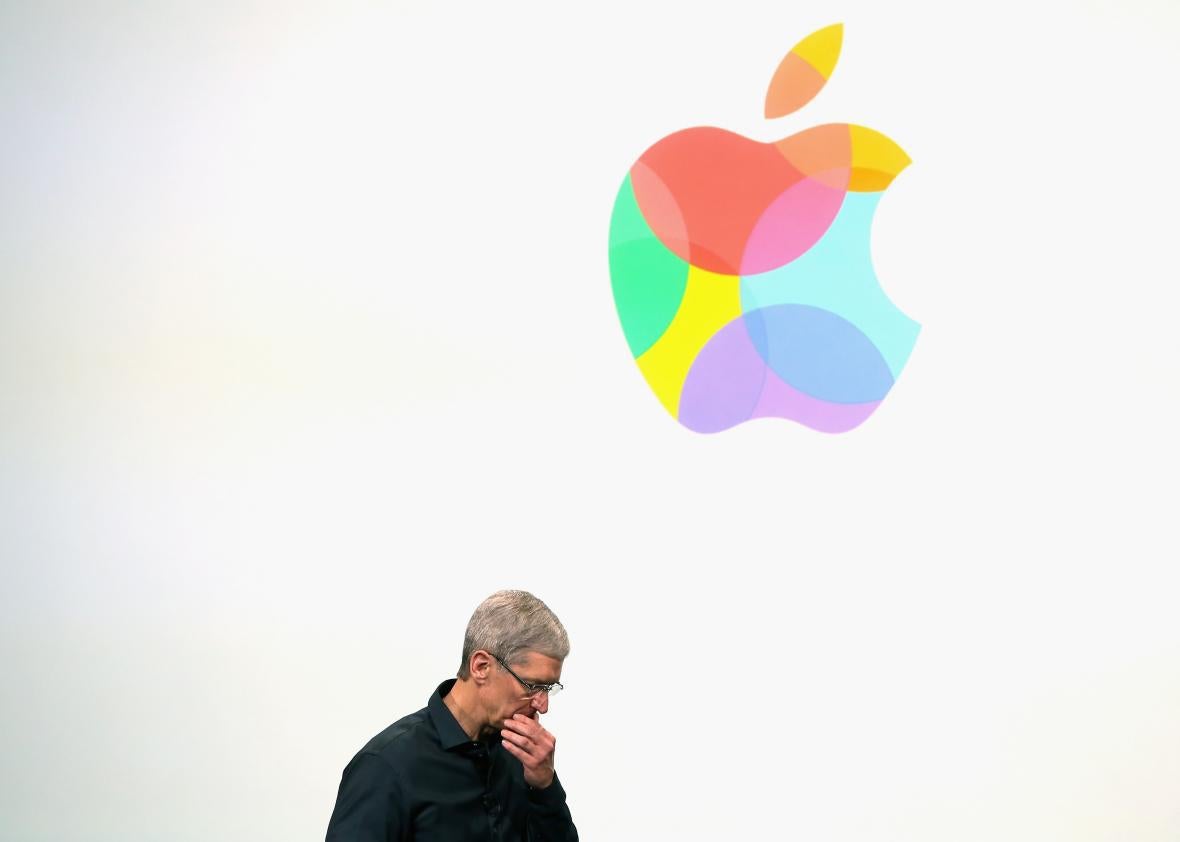The world’s most valuable company appears to have failed on an extravagant project in an embarrassingly public way. But it might not be the sign of decadence and decline that it seems at first blush.
Since early 2015, it has been an open secret in Silicon Valley that Apple was building a car. Under the code name Project Titan, the company reportedly assembled a huge team of engineers at an unmarked facility in Sunnyvale to build what was rumored first to be an electric car (or minivan), and later a self-driving electric car. The excitement revved so high as recently as this summer that Motor Trend devoted its June 2016 cover to imagining exactly what the Apple Car would look like.
Now it seems Apple has slammed on the brakes. Following a pair of earlier reports that Apple was downsizing its car project and shifting its focus, Bloomberg reported on Monday that the company’s plan “no longer includes building its own car.” Instead, Apple’s team has pivoted to building an autonomous driving system—that is, the software to power a self-driving car. The company has given Project Titan’s leaders a deadline of late 2017 to “prove the feasibility of the self-driving system and decide on a final direction,” Bloomberg writes. Meanwhile, hundreds of team members “have been reassigned, let go, or have left of their own volition in recent months,” while Apple has continued to hire others with a focus on software and A.I.
As with most of the earlier media scoops on the Apple car, this one is anonymously sourced, so it’s hard to say anything for sure. But the claims are consistent with prior reporting by Bloomberg and the New York Times and the documented departure of key executives from the Project Titan team.
Assuming it’s true that Apple has given up on building a car, at least for the time being, the project will go down as an embarrassing misstep by CEO Tim Cook and company. It almost certainly cost the company a pile of money and distracted from its core business. If Apple did peak in 2015, as I’ve suggested, history may record this as an indicator of a company that was beginning to lose its touch.
Yet, in an odd way, it could be a sign of health that the company was willing to cut bait on such a large and highly publicized project at this juncture. One of Apple’s great strengths has always been its focus. In contrast to a company like Google that seems to pursue every idea at once, Apple does a few things, and it does them far better than anyone else.
Cook, who is sometimes derided as a corporate custodian who lacks his predecessor’s legendary vision, surely deserves some blame if the car project turns out to have been misguided. Yet he also deserves some credit, both for pursuing a bold new idea and for cutting his losses when it seemed clear that it was not on the road to success.
The worst possible outcome for Apple would have been to continue pouring resources into a doomed project, whether due to wishful thinking, an unwillingness to admit defeat, or sheer organizational inertia. That would have been a sign of a company in decline, heedlessly expanding for expansion’s sake. Building and releasing an Apple car that flopped would have been far more than an embarrassment. It could have been the company’s undoing.
Instead, Apple is shifting gears, redirecting resources to a software project that is far less risky and capital-intensive than actually mass-producing vehicles. It’s still risky, and it could still backfire. But at least we now know that Apple won’t be afraid to call it off if it isn’t working.
In the technology industry, staying on top can be almost as hard as getting there. History teaches us that even the greatest companies eventually lose their way by becoming complacent and missing big trends, or by overextending themselves and losing focus. The car project, from what we know, shows Apple remaining vigilant to both fates. Project Titan may have failed, at least on the hardware side. But, to borrow a Silicon Valley cliche: At least it failed fast.
